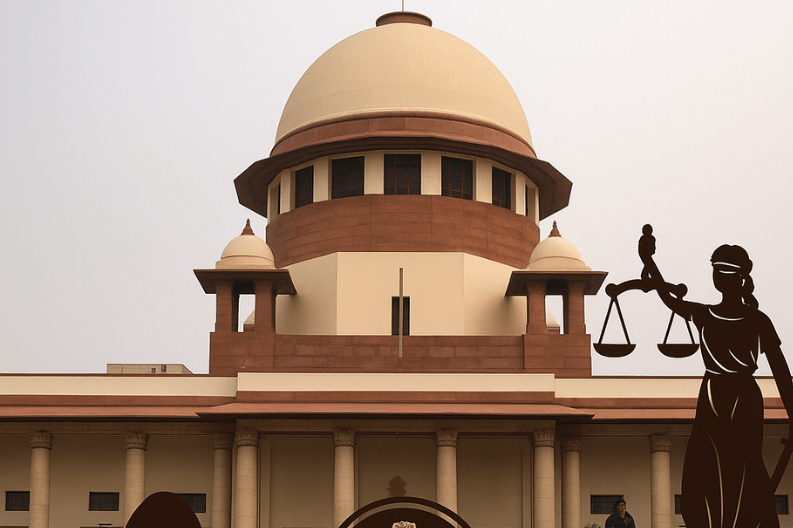The Supreme court steps up to fight Cyber Crimeby transferring all digital arrest investigations to the Central Bureau of Investigation (CBI). This bold move, announced on October 27, aims to counter the rising wave of cyber crimes across India. Moreover, the decision underlines the urgent need for coordinated national action, as many of these cases extend beyond borders and involve global networks.
A bench led by Justices Surya Kant and Joymalya Bagchi discussed the growing concern and instructed authorities to gather detailed information on all First Information Reports (FIRs) filed across states and union territories. According to the judges, understanding the scale of the issue is the first step toward effective prevention.
Importantly, one of the key cases that triggered this decision came from Ambala, Haryana. In that case, senior citizens lost ₹1.05 crore to scammers who used fake court orders. This shocking fraud revealed how criminals misuse digital tools to impersonate the judiciary and deceive innocent citizens. The court noted that such crimes not only cause financial loss but also weaken public trust in the justice system.
Justice Surya Kant emphasized that cyber crimes are not isolated events. Instead, they form part of sophisticated networks that often operate from foreign locations. In fact, reports show that several of these scams originate from countries such as Myanmar and Thailand.
Meanwhile, Solicitor General Tushar Mehta, representing the CBI, informed the court that many cyber frauds have international connections. He added that the agency is preparing a nationwide strategy to handle these cases efficiently. The court welcomed this plan and confirmed that it would monitor the CBI’s progress closely to ensure accountability.
To promote transparency, the Supreme Court issued notices to all states and union territories. Each region must now share data about the registered digital arrest cases. Consequently, this nationwide coordination will help authorities design better policies and improve investigation speed.
Furthermore, the bench raised concerns about the shortage of skilled cyber experts in India. It asked whether the CBI requires additional staff or advanced technology to investigate these complex crimes. The judges also suggested collaborating with private cyber specialists to strengthen future operations.
Earlier, on October 17, the Supreme Court had already expressed deep concern over the growing number of online scams. The judges pointed out that fraudsters fabricating court documents not only cheat people but also damage the credibility of India’s legal institutions.
Currently, cyber crime continues to grow at an alarming rate, affecting both cities and villages. Elderly people, in particular, often become targets due to limited awareness of online security. Common tactics include fake summons, cloned websites, and fraudulent links shared via email or text message.
Experts strongly advise citizens to take preventive actions such as:
- Always verifying legal and government communications.
- Never sharing financial or personal data through unknown calls or links.
- Reporting suspicious messages immediately through the National Cyber Crime Portal (cybercrime.gov.in).
Undoubtedly, technology has improved daily life, yet it has also opened new doors for criminals. Therefore, the judiciary’s proactive role shows a growing understanding that fighting cyber threats demands modern and collective solutions. The collaboration among the CBI, state police, and cyber experts could mark a turning point in India’s war against online fraud.
In conclusion, the Supreme court steps up to fight Cyber Crime by prioritizing national coordination, technological expertise, and stronger law enforcement. With better awareness, faster investigations, and effective cooperation, India aims to create a digital environment that is both safe and trustworthy for every citizen.



